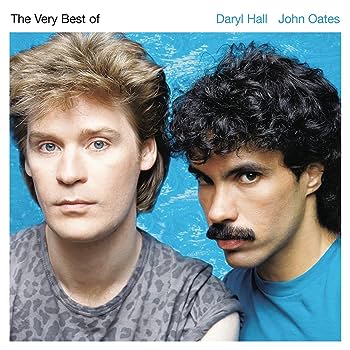Daryl Hall & John Oates’ “Maneater,” initially released in 1982, works lyrical wonders to correlate to the archetypical femme fatale, as further demonstrated by F. Scott Fitzgerald’s Daisy Buchanan within his publication of The Great Gatsby. Through my analysis of these lyrics, the song could theoretically even be used to demonstrate Daisy Buchanan’s effect on Jay Gatsby. In a sense, this song could be utilized as a warning for Gatsby, as the maneater that is Daisy Buchanan will effectively “chew [him] him” through his incessant desire for her.
The song opens with comparisons of “she” to a lean, hungry animal. With this, these opening lyrics establish a womanly hunger for something. With respect to The Great Gatsby, Daisy’s “hunger” can be attributed to her fallacious “desire” for Gatsby, but more-so for his wealth and the pair’s status to be used against her unfaithful husband, Tom Buchanan. The following lyrics, “Oh, she’s sitting with you, but her eyes are on the door,” appropriately relate to Daisy’s fallacious desire, as she makes it appear to Gatsby that she’s “sitting with him,” but her eyes are truly “on the door” as she prioritizes her relationship with her husband over any perceptual relationship she could’ve continued to have with Gatsby (0:56-1:01). Furthermore, the emphasis of “money’s the matter,” allows me to incorporate this topic into my broad subject matter of Mo Money, Mo Problems, especially as Gatsby’s wealth becomes prey to the predator that is Daisy Buchanan (1:16-1:18). Right after this delineation, the claim “If you’re in it for love, you ain’t gonna get too far” is stated, which especially is representative of the aforesaid warning that could’ve been given to Jay Gatsby (1:18-1:25).
The following chorus plays with a catchy beat to establish that the maneater is coming to chew up the men in which she preys financial success off of. I could envision this song being played as Daisy first enters the Gatsby Mansion, as the chorus itself is quite literally a warning of this maneater’s behavior. The next verse opens with more warning, saying “I wouldn’t if I were you, I know what she can do, she’s deadly man, she could really rip your world apart” (1:54-2:04). To this degree, this line comes off as an educated audience of The Great Gatsby’s warning to Jay Gatsby as Daisy manages to rip his world apart. Even so, Daisy is responsible for the murder of Jay Gatsby, hence her being “deadly,” as she gives him the responsibility for her vehicular manslaughter which places a hit on the back of his head. Right after, the lyrics “Mind over matter, the beauty is there, but a beast is in the heart” are sung, emphasizing the belief that we the audience (and likely, Nick Carroway) wish Gatsby would’ve been able to hold before his fate (2:05-2:11). Gatsby did not recognize this beast, and neither did narrator Nick Carroway until after the tragic events of The Great Gatsby occurred. These descriptions of a maneater align with the traditional definition of femme fatale, just as a femme fatale utilizes her beauty to manipulate her victims.
The song continues with the choral warning up until its conclusion, which makes me wonder, had Gatsby have been able to hear this, would he be able to recognize Daisy Buchanan for who she truly is, or would he still get “chewed up” just as he tragically did? Would this warning have any effect on him, or would it work conversely to further empower Daisy—a true maneater?
Hall, Daryl and Oates, John. “Maneater.” The Very Best of Daryl Hall & John Oates. RCA Records, 2001. Spotify, https://open.spotify.com/track/3xkG5WXCnSYxastDq3pmKn?si=429e14d61fe742fe
